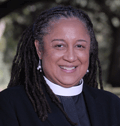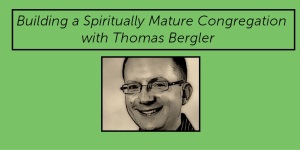The Very Rev. Phoebe Roaf at St. Philip’s Episcopal Church in Richmond, VA has used  ChurchNext in a variety of capacities at St. Philip’s. She says that they have had particular success with using ChurchNext classes to support specific ministries within her congregation.
ChurchNext in a variety of capacities at St. Philip’s. She says that they have had particular success with using ChurchNext classes to support specific ministries within her congregation.
Mother Roaf has used Introducing the Altar Guild, for example, to help members of the St. Philip’s altar guild learn how to practice this ministry effectively and prayerfully. And the St. Philip’s property development committee, when establishing a community garden at the church, used Spirituality and Gardening to help participants learn to use the act of building the garden as a spiritual act, a living example of prayer in the world.
Many ChurchNext classes are designed to support particular ministries within the church. We offer, for example, classes on lectoring, on lay Eucharistic ministry, on running a vacation Bible school, on bringing the Eucharist to shut-in parishioners, and on topics directly related to many other ministries. If your church uses ChurchNext, we suggest looking over our catalog of classes and considering how different ministries within the church might profit from using them. Let the leaders of each ministry know that a class designed to support their particular ministry exists. Because the classes are available in formats that support both individual and group learning, ministries have plenty of flexibility in terms of how they want to use the classes.
We hope that your congregation, like St. Philip’s, explores was to use ChurchNext classes to support its ministries. If you have a story of how a class has been helpful to a ministry at your church, please comment! We would love to hear about it.











